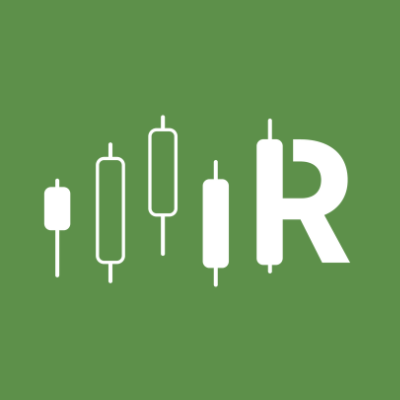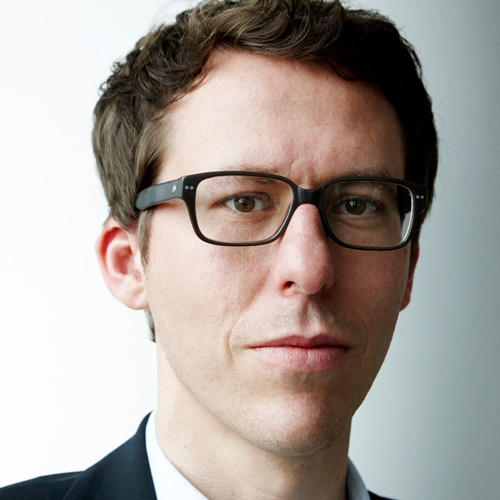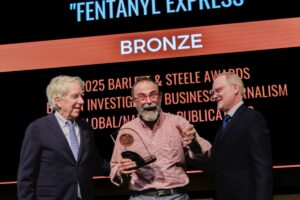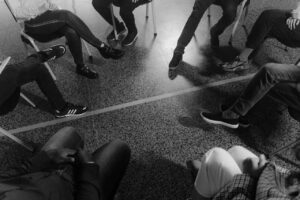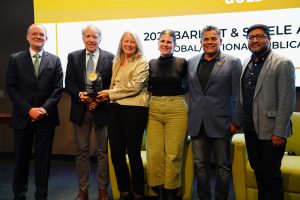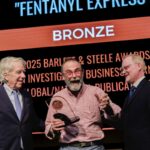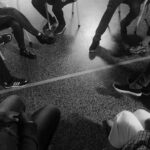Bastian Obermayer is a German investigative journalist and deputy head of the investigative unit of the Munich-based newspaper Süddeutsche Zeitung. He was the first person contacted by the Panama Papers whistleblower John Doe and helped to break the story about the huge leak of incendiary offshore banking records. Obermayer was one of the recipients of 2016 Barlett & Steele Gold Award, and is currently a Knight-Wallace Fellow at the University of Michigan.
What’s the most valuable lesson you learned over the course of your career?
I would say one lesson is that as a journalist it’s not that you need to be unbelievably talented because it’s a profession that you can learn. The writing, the editing, whatever, this is all something you can teach somebody and they can learn it. But I think if you want to be very good then you need enthusiasm for the job. You need to be willing to work very diligently, and your really want to go the extra mile. And if you’re working as an investigative reporter then you need to be creative. You need to think how to proceed, how to change, if you need to find another approach. Who did I forget to talk to? You’re not allowed to give up, so you have to go on and keep on trying.
Knowing what you know now, is there one thing you would tell yourself when you were first starting as a journalist?
I would not believe what’s happened. When I first started I thought that best case I would become a sports journalist in a regional newspaper, and I would have been happy with that. I did not expect a big career with Süddeutsche Zeitung because I worked back then with a smaller, regional competitor. I learned that doing what you’re doing right now helps you a lot to get the next step. And I wasn’t even thinking about it. So when I was offered the internship at Süddeutsche Zeitung I couldn’t believe it. I never thought I’d become a long-form writer there, maybe just a researcher, and then a year later I was writing long-forms, and it worked out and I was completely happy with that, and I thought I would be doing it all my life. And then the head of the investigative unit of the newspaper asked me if I’d like to come over, so I did, and I liked it even more. And I thought, doing investigative work in Germany is what I will be doing my whole life, and I thought that’s great. I don’t know what’s next. I don’t have any plans.
That’s exciting, though. It’s always changing.
I think one of the best things in journalism is that you can be the city hall reporter and stay for 40 years—we have people like that at our newspaper. But you can also change your beat every five years. I didn’t have a beat at the one of the papers I worked at, so I did completely different stories all year. One of my stories would be a long-form portrait of one of the most important soccer players in Germany, and the next story would be about a person that needed a new heart and I followed him for a year until he got it and he nearly died. The third story would be about a Catholic priest who sexually misused the kids. I really loved never knowing what was next.
Is there one specific aspect that drew you to investigative business reporting? And why do you think it’s important?
Well to be honest I never was a business reporter because I never had a clue about business. Well, now I have a clue about business, especially about offshore business. But I think it’s more that I have a sense for injustice and inequality, and when I see it I want to name it and report on it. And that’s something that I had from the beginning and I think I still have this. When I was 18 I lived in a small German village of 6,000 people. There was only one regional newspaper and no other media. We, the young people, were really unhappy with it. So we founded our own monthly publication and we wrote about [a] surveillance station that the NSA had back in 1998, long before Snowden. Everybody knew that [the NSA was] doing espionage, but no one talked about it because the U.S. was a big friend of ours. And we thought, especially to a good friend, you must be able to say that’s not okay. So we did, and that was the first moment I felt, even as a young journalist, you are able to speak out the truth, and people are listening to you and you can make a difference. And we did.


